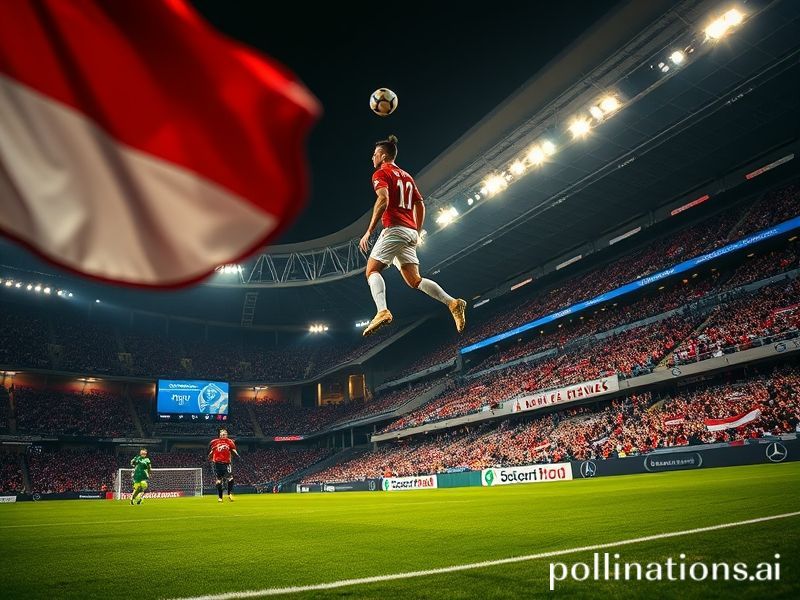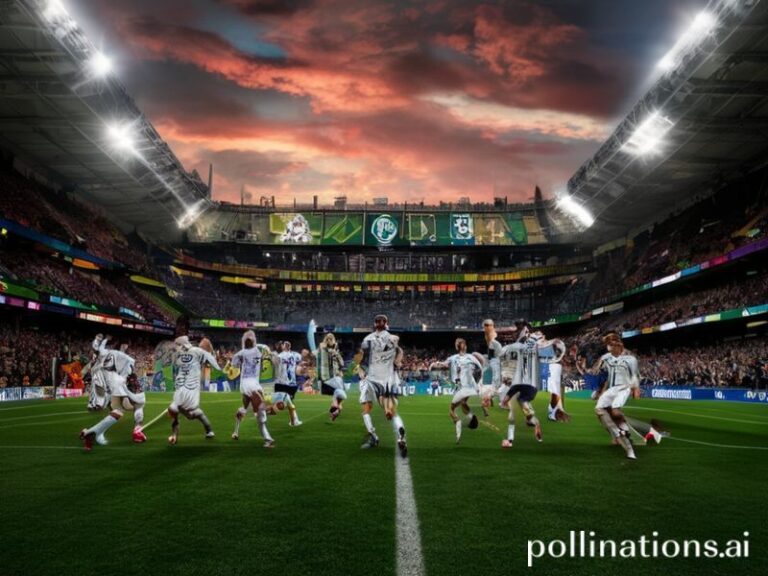Stuttgart vs Celta: The Europa League Tie That Explains Why We’re All Doomed (and Slightly Cheered Up)
Stuttgart vs Celta: A Microcosm of the World’s Slow-Motion Existential Crisis
By Correspondent-at-Large, Dave’s Locker
We begin, as everything does these days, with the suspicion that the universe is trolling us. VfB Stuttgart—once the Bundesliga’s poster child for beautiful chaos—will host Celta Vigo, Spain’s recurring fever dream of attacking flair and defensive self-loathing, in a Europa League knockout tie that nobody’s grandmother marked on the calendar. Yet, because the planet’s attention span now rivals that of a goldfish on TikTok, this fixture has been upgraded to geopolitical event. Why? Simple: in 2024, if two football clubs from medium-sized European cities breathe in each other’s direction, the global supply chain, crypto markets, and at least three think tanks in Washington feel compelled to publish white papers.
Let’s zoom out. Stuttgart is the capital of Baden-Württemberg, a region that quietly manufactures half the parts keeping your electric toothbrush from exploding. Celta hails from Vigo, a Galician port that builds most of the world’s diesel engines you pretend you don’t need anymore. Somewhere between the Mercedes-Benz Arena and Balaídos, the ghost of industrial Europe is watching this match through fogged-up bifocals, wondering when we all agreed that progress meant shipping raw ideology back and forth instead of ball bearings.
On the pitch, the stakes are elegantly meaningless. Stuttgart—coached by Sebastian Hoeneß, a man whose surname guarantees relentless gegenpressing and family therapy—have rediscovered the art of scoring three while conceding four. Their motto appears to be “We’ll outrun our problems until cardiac arrest sets in.” Celta, meanwhile, are managed by Rafael Benítez, a tactical monk who’s spent two decades proving that the shortest distance between two points is a 47-pass U-shape. Their motto is “If we keep the ball long enough, maybe the opponent will die of boredom.” Watching these philosophies collide is like witnessing a philosophy seminar held inside a burning IKEA.
The international implications are, naturally, absurd. Chinese streaming numbers for the fixture have spiked after a rumor spread that the winner earns preferential lithium contracts. The U.S. State Department issued a bland statement urging “all parties to respect the away-goals rule as a cornerstone of the rules-based order.” In Buenos Aires, an ultra group has already choreographed a protest tifo blaming the IMF for Stuttgart’s high defensive line. Somewhere in Kyiv, a drone operator is live-tweeting the match between sorties, because even war now comes with push notifications.
Financially, the tie is a masterclass in modern alchemy. Both clubs are majority-owned by consortia that exist primarily inside PowerPoint decks registered in Delaware. Stuttgart’s shirt sponsor is an Austrian sports-betting firm that also insures Alpine avalanches—poetic, given their back line. Celta’s front-of-jersey real estate belongs to a Galician seafood exporter promising “carbon-negative octopus,” a phrase that would have made Orwell choke on his paella. Every completed pass triggers micro-transactions on a blockchain only three people understand, one of whom is currently laundering money through digital collectible shin-guards.
And yet, amid the noise, the match will still feature 22 humans chasing inflated polyurethane for the ancient reason that it beats thinking about tomorrow. Stuttgart’s Serhou Guirassy—who has scored more goals in 2024 than several nation-states—will attempt to outfox Celta’s veteran goalkeeper Vicente Guaita, a man whose reflexes are kept in a jar labeled “break glass in case of existential dread.” Somewhere in the stands, a Stuttgart fan dressed as a pretzel will hug a Celta supporter wearing a pulpo hat, and for 90 minutes the world’s centrifugal spite will pause, distracted by a well-weighted through-ball.
Final whistle approaches. One club advances; the other boards a bus already live-streaming its carbon offset receipts. Analysts will call it a “litmus test for mid-tier European sustainability models,” which is code for “we have no litmus paper left, so we’re using football.” The rest of us will shuffle back to doom-scrolling, slightly lighter for having watched strangers run in formation under floodlights, pretending the future isn’t on crutches.
And that, dear reader, is what passes for hope these days. Wear a scarf; irony only keeps you warm for so long.







